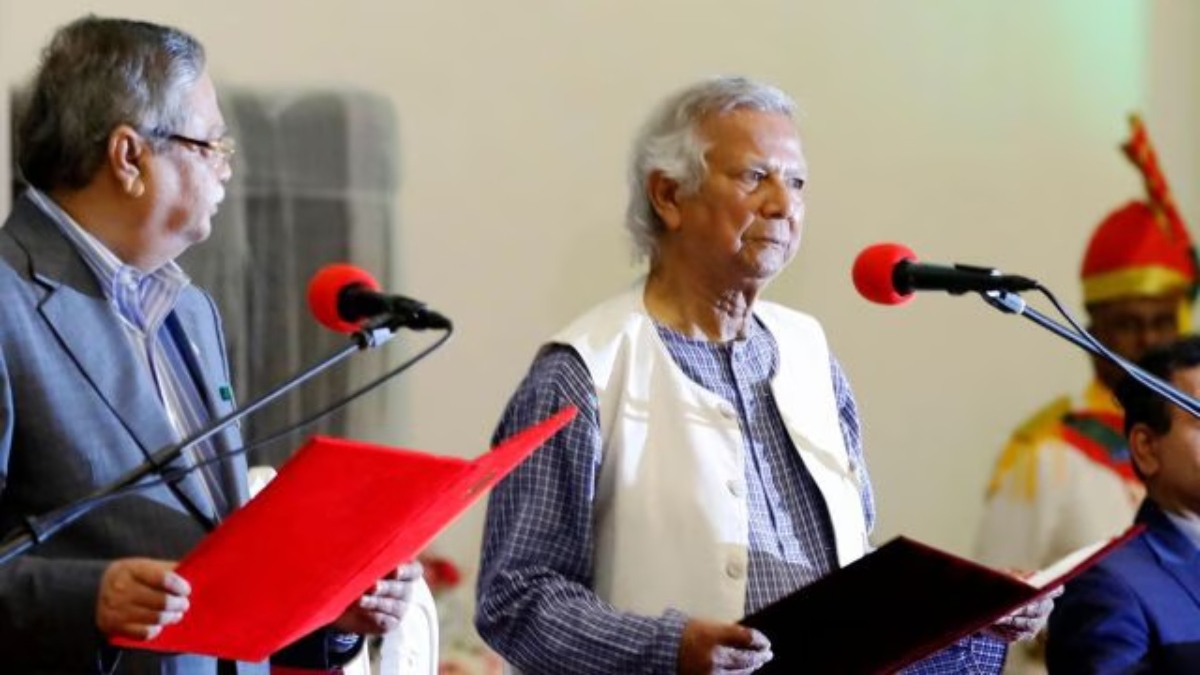 |
|
The recent political shifts in Bangladesh under the leadership of Muhammad Yunus have significantly impacted the relationship between Bangladesh and India. The article highlights several actions taken by the new Bangladeshi government that are detrimental to the traditionally strong ties between the two nations. The cancellation of a judge training program in India, scheduled to be fully funded by the Indian government, is a clear indication of the deteriorating relationship. This decision, justified by the Bangladeshi Supreme Court, signifies a move away from the collaborative spirit previously fostered under Sheikh Hasina’s leadership. The implications of this cancellation extend beyond the immediate loss of training opportunities; it symbolizes a broader shift in Bangladesh's foreign policy orientation.
Perhaps the most concerning development is the reported agreement between Bangladesh and Pakistan for the Pakistan Army to train Bangladeshi troops beginning in February 2025. This would mark the first time since the 1971 war that Pakistani military personnel would train their Bangladeshi counterparts. The potential implications for India are substantial. Pakistan has a history of anti-India sentiment and actively engages in proxy wars, including support for terrorist groups operating in Jammu and Kashmir. Allowing Pakistani military trainers access to Bangladeshi soldiers presents a significant security risk to India. The training could expose Bangladeshi forces to Pakistani narratives that demonize India, potentially influencing their future actions and perspectives. The Indian government, represented by the South Block, must closely scrutinize this development and its potential long-term consequences for regional stability.
Further exacerbating the situation is Bangladesh's revision of its history textbooks. The new texts significantly downplay the contribution of Sheikh Mujibur Rahman, widely considered the Father of the Nation, to Bangladesh's liberation in 1971. Instead, they elevate the role of Ziaur Rahman. While acknowledging Ziaur Rahman's participation in the Liberation War, the rewriting of history distorts the established narrative and contradicts the understanding shared by India and a large segment of the Bangladeshi population. This revisionist approach to history undermines the shared historical narrative that has historically strengthened the bond between India and Bangladesh. It's perceived as an attempt to undermine India's position and supports a narrative that potentially aligns with Pakistan's interests, further complicating the already tense regional dynamics.
Yunus's recent meeting with Pakistani Prime Minister Shehbaz Sharif underscores the growing closeness between Dhaka and Islamabad. The expressed desire to strengthen bilateral relations and address the unresolved issues stemming from the 1971 war signals a significant shift in Bangladesh's foreign policy. The enthusiastic response from Shehbaz Sharif demonstrates Pakistan's eagerness to leverage this newfound opportunity to further its strategic objectives in the region. This strengthens concerns that Bangladesh's actions might be part of a broader Pakistani strategy to create instability and challenge India's regional influence. The implications of this changing dynamic could have wide-ranging effects on South Asian geopolitics, potentially leading to increased tensions and uncertainty.
In conclusion, the recent actions taken by the Bangladeshi government under Muhammad Yunus pose a serious challenge to India-Bangladesh relations. The cancellation of the judges' training program, the agreement with Pakistan for military training, and the revisionist approach to history all indicate a significant shift in Dhaka's foreign policy. These actions raise serious security concerns for India and underscore the need for careful analysis and strategic response from New Delhi. The long-term consequences of this changing dynamic remain to be seen, but the current trajectory clearly points towards a more complex and potentially confrontational relationship between India and Bangladesh.
Source: Bangladesh and its reckless actions jeopardise Delhi-Dhaka ties | Explained
